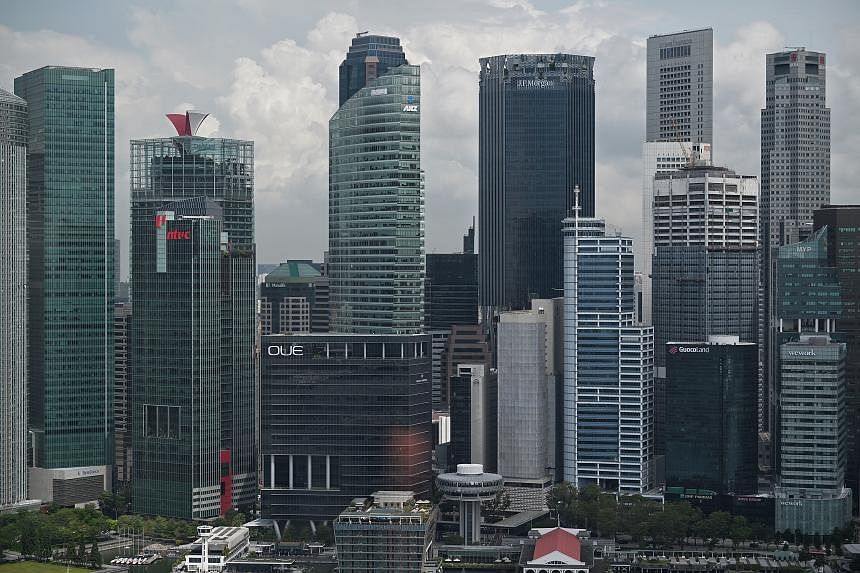SINGAPORE - Private-sector economists raised their 2024 growth expectations for Singapore’s export-driven economy amid hopes of a pickup in global demand, recovery in the electronics sector and more robust growth in China.
The Republic’s gross domestic product (GDP) growth for 2024 was projected at 2.4 per cent, up from an earlier prediction of 2.3 per cent, according to a quarterly survey of professional forecasters released by the Monetary Authority of Singapore (MAS) on March 13.
The Ministry of Trade and Industry’s (MTI) latest estimates showed the economy grew 1.1 per cent in 2023, down from the 2022 full-year growth of 3.8 per cent.
The respondents of the MAS survey also expected the economy to grow by 2.6 per cent on a year-on-year basis in the first quarter of 2024.
Seventy-one per cent of the 23 economists who responded to the survey sent out in February ranked better-than-expected global growth for 2024 as the most likely upside for Singapore’s economic outlook.
Conversely, most forecasters cited slower-than-expected external growth and increased geopolitical tensions as risks to the economic outlook. The respondents also flagged inflationary pressures and disappointment on the Chinese growth outlook as other major risks.
MTI has projected that the Singapore economy would grow between 1 per cent and 3 per cent in 2024 as its trade-related sectors improve modestly.
However, the ministry also flagged the risk that the cumulative effects of higher interest rates and a slower-than-expected Chinese economy may keep overall global growth depressed.
DBS Bank economist Chua Han Teng said he expects Singapore’s GDP growth to recover to 2.2 per cent in 2024 from 2023’s 1.1 per cent. However, he added that his prediction hinges on better performance from external-oriented sectors in manufacturing, wholesale trade and financial services, with travel-related services also providing some support.
“Yet we think the improvement will likely be fragile amid global economic uncertainties from high interest rates in advanced economies, bumpy conditions in China and lingering geopolitical risks that could disrupt supply chains,” he said.
The respondents of the MAS survey also gave their maiden forecast for 2025, with GDP next year projected to expand by 2.5 per cent.
Most of the forecasters were hopeful that both all-items inflation and core inflation – which excludes private transport and accommodation costs – would ease in 2024 from levels in 2023.
The median forecast of their all-items inflation, or headline inflation, for the whole of 2024 came in at 3.1 per cent, down from 3.4 per cent in the December survey.
Meanwhile, the median forecast for core inflation was at 3 per cent, unchanged from the previous survey.
The MAS estimates that both headline and core inflation are likely to average between 2.5 per cent and 3.5 per cent in 2024.
For the labour market, the respondents to the survey expected the unemployment rate to come in at 2.1 per cent by the end of the year, unchanged from the previous survey.
Ministry of Manpower data shows overall unemployment averaged 1.9 per cent in 2023, while the resident unemployment rate came in at 2.7 per cent.
None of the respondents expected any change in the MAS’ tight monetary policy stance in the upcoming April review. However, some predicted that the stance will start to shift towards easing in the July and October reviews.


